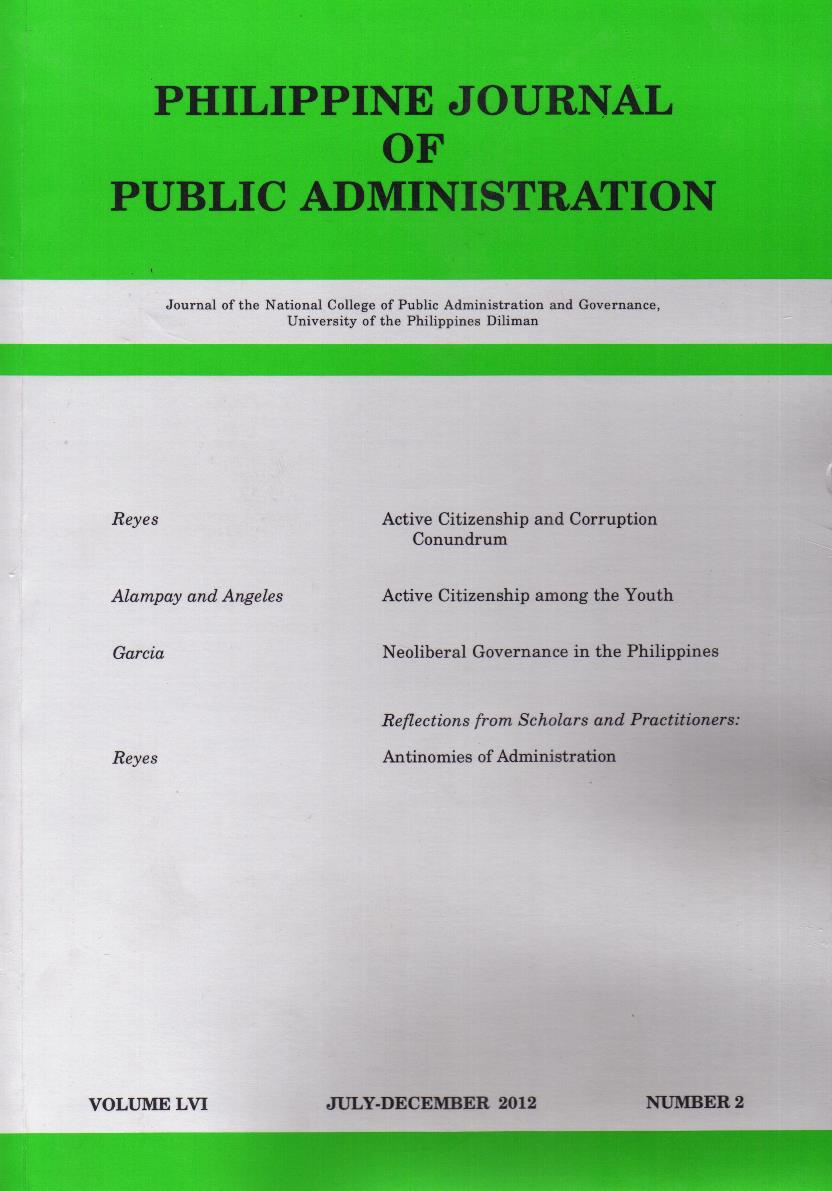Revisiting the Public Sector Reform Agenda: Towards Active Citizenship and the Corruption Conundrum
Abstract
Much has been said and done about engendering reform in the public sector. Prescriptions and propositions towards enhancing the efficiency of public sector organizations have endured as a continuing discourse in the study and practice of public administration and modern bureaucracies. It can be said that the development and advancement of administrative thought have been spawned by continuing initiatives to reform bureaucracies as evidenced by efforts to professionalize them in Europe, in America and in Asian societies. Many of these efforts have generally addressed the nagging and persistent issue of corruption in the public sector, which remains a formidable concern in both developed and developing societies. There has been of late, a continuing movement towards developing conventions, protocols, agreements or declarations of nations to jointly fight corruption. What appears missing, however, in the current crop of anti-corruption programs is a more forceful and vigorous agenda towards strengthening meaningful citizen participation against corruption. This article aspires to further explore and contribute to the continuing discourse on the issue of active citizen engagement towards engendering the fight against corruption in the dynamics of public sector reform. As such, it takes off from previous discussions seeking to prescribe more pronounced roles for citizen involvement in reforming the public sector. The article also reviews the different propositions that have been offered through the years towards reforming public administration practices and processes.



